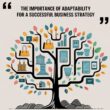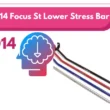Benefits of Deit:
Starting a diet may be both thrilling and intimidating, especially for beginners. With so many fad diets and contradictory information available, it’s critical to approach dieting with a balanced perspective.
Tehis beginner’s guide is intended to offer important information and practical recommendations to help you start your dieting journey and reach your health and wellness goals.
Remember that dieting is not about restriction or fast fixes; rather, it is about making long-term lifestyle adjustments that nourish your body and promote overall well-being.
Understand the Basics of Dieting.
Knowing the basics of dieting is essential for success. Making conscious, thoughtful choices about our eating habits is the foundation of dieting. It involves providing our bodies with the ideal nutritional balance to maintain our health and well-being.
Consuming a range of nutritious foods, such as fruits, vegetables, whole grains, lean proteins, and healthy fats, is a vital aspect of dieting. Portion control is essential for maintaining a healthy weight. In addition, a balanced diet should include frequent physical activity, drinking plenty of water, and mindful eating.
Set Realistic Goals:
Setting attainable and realistic goals is essential when beginning a diet. Determine your unique health goals as a starter, such as weight loss or increased energy. To make development less intimidating, divide your major objective into more attainable, smaller milestones. For instance,
if you want to lose weight, try to shed 1-2 pounds per week. To keep track of your progress, make quantifiable goals like eating more vegetables or drinking fewer sugary beverages.
Maintain adaptability and flexibility and change your tactics as necessary. You’ll have a successful dieting experience if you set clear, attainable goals.
Prioritize Balanced Nutrition:
Balanced nutrition is one of the main ideas to emphasize when it comes to dieting. Understanding the significance of giving your body a range of essential nutrients is crucial for beginners.
A wide variety of nutrient-rich foods should be included in your diet if you want to practice balanced nutrition. These include entire grains, lean proteins, colorful veggies, fresh fruits, and healthy fats.
In addition to vitamins and minerals, these meals also include vital antioxidants that promote your general health. Processed foods, sweet snacks,
and calorie-dense beverages must be avoided or kept to a minimum as they provide little nutritional benefit and can impede your progress. Instead, concentrate on giving your body healthy, organic foods that will nourish you from the inside out.
Prioritizing balanced eating provides your body with the nourishment it needs to thrive on your dieting journey while also supporting your long-term health and well-being.
Portion Control with Deit.
Portion control is an essential part of successful dieting. As a beginner, it’s critical to recognize that portion sizes have a significant impact on our calorie consumption and overall weight management. When we eat more than our bodies require,
we risk overeating and stifling our growth. Using smaller dishes and bowls, which visually make our meals appear larger, is a simple approach to practicing portion control. It’s also critical to listen to our bodies hunger and fullness cues.
Slowing down and savoring each bite assists our brains to register fullness, preventing overeating. We may enjoy our meals while keeping a healthy balance by being conscious of our portion amounts and listening to our bodies.
Remember that achieving the perfect balance and fueling our bodies with suitable portion sizes is more important than deprivation for good health and well-being.
Hydration and Its Importance:
Staying hydrated is not only important for overall health, but it also plays an important part in dieting success. As a beginner, it’s critical to understand the importance of hydration and how it might help you lose weight.
Drinking enough water throughout the day helps maintain body temperature, assists digestion, and increases nutrient delivery in the body. Furthermore, staying hydrated might help reduce cravings and minimize overeating because thirst is sometimes misinterpreted as hunger.
To cut calories and stay hydrated, replace sugary beverages with water or herbal tea. Remember to listen to your body’s cues and drink water even if you aren’t thirsty. By making hydration a priority in your diet, you may improve your general health and maximize the effectiveness of your weight loss efforts.
Incorporating Exercise:
Physical activity regularly is a key part of living a healthy lifestyle. Along with dieting, including exercise in your daily routine can help you lose weight, gain energy, and improve your general fitness.
Find activities that you enjoy, such as walking, jogging, dancing, or cycling, and try to get at least 150 minutes of moderate-intensity cardiovascular exercise every week.
Strength training routines can also help develop muscle, boost metabolism, and enhance body composition.
Mindful Eating and Listening to Your Body
Mindful eating is a successful approach for beginners starting a dieting program. It entails paying attention to the current moment,
using all of your senses when eating, and paying attention to your body’s hunger and fullness cues. You may improve your dining experience and build a better relationship with food by slowing down and savoring each bite.
Mindful eating teaches you to be aware of emotional and environmental triggers that might lead to overeating or poor food choices. Rather than depending on tight rules or restrictions,
mindful eating allows you to make sound decisions about what and how much you eat. By using this method, you can connect with your body more deeply, enhance digestion, and establish a sustainable and healthy eating pattern.
Seek Support and Stay Consistent:
Dieting might be difficult, but having a support system can make a big difference. Share your goals with friends and family, participate in online communities or support groups, or consult with a qualified dietician.
Surrounding oneself with people who share your values can provide motivation, encouragement, and accountability. Remember to stick to your dietary modifications because long-term outcomes take time and commitment.
Final Lines:
Starting a diet as a beginner does not have to be intimidating. You may build healthy habits that will benefit you for years to come by understanding the foundations of dieting, setting realistic goals,
prioritizing balanced nutrition, practicing portion control, staying hydrated, including exercise, practicing mindful eating, and seeking assistance.
Remember that dieting is a long-term commitment to your total health and well-being, not a fast fix. Accept the trip, be gentle with yourself, and rejoice in each small triumph along the way.











Health niche apki bht achi hai sister
Nice
Deiting is very good thing